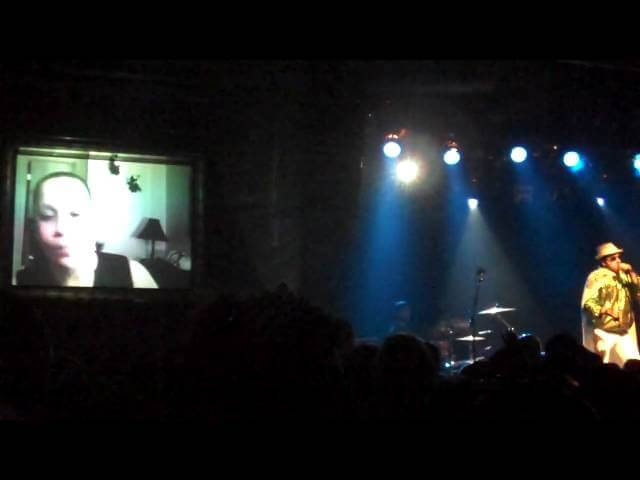Wallpaper's Eric Frederic is (probably) done with Auto-Tune forever

In the last decade, vocalists who found themselves struck with lyrical inspiration but who weren't blessed with the ability to hit pitch-perfect notes have increasingly turned to Auto-Tune—an audio processor that can make any out-of-key schlub sound like a pop star. Among the processor's many fans—until now, at least—was Wallpaper, Bay Area musician Eric Frederic’s foray into wild party music. Originally grasping on to the vocal production in 2005—before it became ubiquitous on pop radio—Frederic wrote what would become Doodoo Face, Wallpaper’s debut record. The music combines the all-out funkiness of George Clinton’s Parliament Funkadelic with brazen, hyphy Bay Area rap; assuming the stage persona of "Ricky Reed," Frederic's lyrics reflect the isolation of today’s youth culture, satirizing modern life through unabashed love of partying, connecting through the Internet, and generally not giving a fuck. Prior to his performance tonight at DC9, Frederic spoke with The A.V. Club about the difference between himself and Ricky Reed, how he isn’t famous enough yet to claim Auto-Tune as his own, and what exactly a doodoo face is.
The A.V. Club: What’s with the name Doodoo Face? Is it part of an inside joke?
Eric Frederic: I kinda wish. It’s been around for a long time, but nobody has put a name on it. It’s just the face that one makes when a piece of music is so funky that your face crinkles up like you smelled a piece of shit on the ground. If you watch old DVDs of James Brown or Parliament Funkadelic or Archie Bell and see the band kick into the main groove, they kick into doodoo face.
AVC: Are you trying to do the same thing with your music?
EF: I hope that our music inspires listeners to make a doodoo face without knowing what it is.
AVC: Where does Ricky Reed come from? Was he conceived a long time ago?
EF: In early 2008, he came to me in a dream. It sounds a little homoerotic. [Laughs.] There were a lot of issues I wanted to deal with, and I wanted Wallpaper to be a political project, but I didn’t want to come at those issues like Rage Against The Machine or Dixie Chicks. [Laughs.] I wanted to attack them in a satirical manner. I found creating a character whose idiosyncrasies and traits could develop into a real, thorough person would allow me to articulate the real social commentary I wanted to make instead of, “This is a song is about gas prices. This is a song about the economy. This is a song about my generation’s drinking problem.”
AVC: How much of Eric Frederic is in Ricky Reed and vice versa?
EF: We got the same nose. [Laughs.] No. I mean, a lot of what he talks about is an exaggerated, blown-out-of-proportion version of what I deal with on a daily basis. [It’s the] same with a lot of other people that consider themselves good-willed, morally outstanding people that wrestle with the age and culture we live in. On tour we’ll have a lot of money, but it’s hard to not eat at McDonald’s. It’s hard to not have my hand on my cell at all times—I don’t have a manager. After a long day, it’s hard to not plop down in front of the TV and watch garbage. These are all things I’m not proud of and I want to stop, but it’s a struggle. Ricky Reed is the guy who jumps in headfirst.
 Keep scrolling for more great stories.
Keep scrolling for more great stories.
